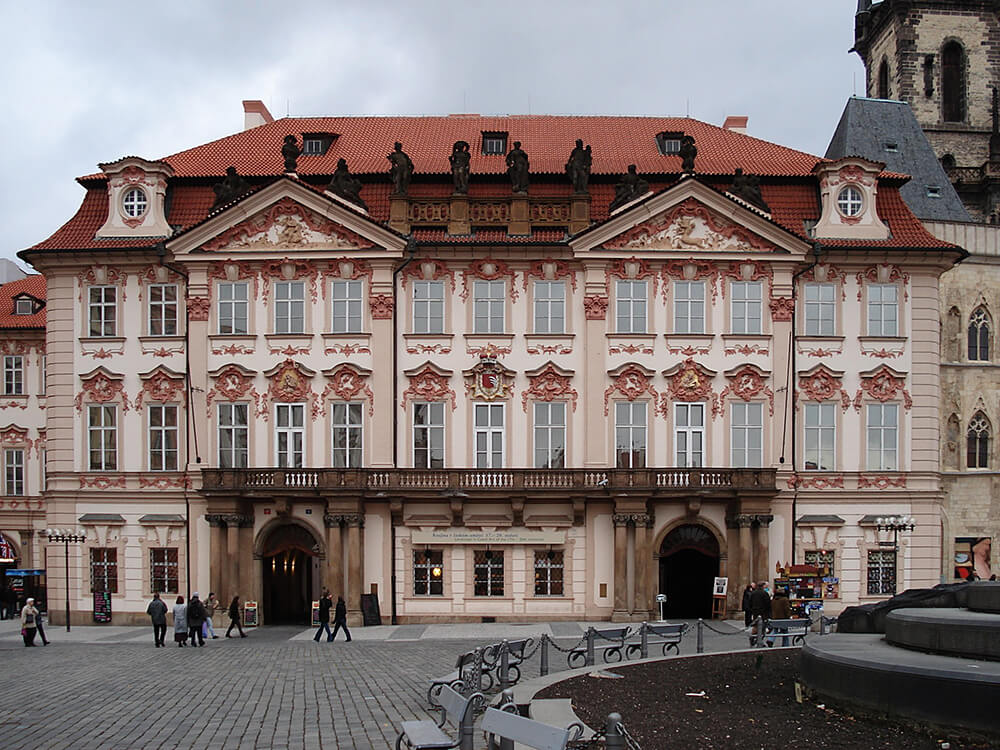As we look forward to our upcoming general meeting in the beautiful city of Prague, it is worthwhile highlighting one of its many hidden bibliographic gems, which some of us will have the chance to explore: the Kinsky Library [Knihovna Kinských]. The library can be found within the grand and imposing architecture of the Golz-Kinský palace, which takes pride of place within Prague’s Old Town Square. Its existence, however, is largely unknown to the thousands of tourists who drift in and out of the city’s historic heart.
The library’s origins are inextricably linked to the French Revolution, though not in the way one might expect. In 1805, Ferdinand of Kinsky made a remarkable acquisition of 18,353 volumes from Mannheim bookseller Fontaine. These books came with their own dramatic history – they had previously belonged to French émigrés, aristocrats and intellectuals forced to flee revolutionary France, leaving behind their precious literary collections. This circumstance has made the Kinsky Library an unexpected repository of Revolutionary-era documentation, offering scholars a unique lens through which to study this pivotal period in European history.
The story of the library reflects changing attitudes toward knowledge and public access in the 19th century. The Kinsky family had already demonstrated their commitment to public enlightenment by donating their ancestral collections to what would become the Czech National Library. Under Rudolf Kinsky’s stewardship, the library transcended its private origins to become a sanctuary for bibliophiles, embracing a more democratic vision of cultural heritage. This transformation coincided with a period of significant growth, with the collection expanding to 34,000 volumes by the early 20th century.
The library’s journey mirrors the broader social and political transformations of the Czech lands. Following the profound changes of 1945, the collection was nationalised, marking the end of its aristocratic ownership. Since 1950, the Library of tThe National Museum has served as its custodian, ensuring the preservation of this remarkable collection for future generations.
Today, the Kinsky Library stands as more than just a collection of books. It represents a unique convergence of Czech, French, and broader European cultural heritage, preserved within the elegant confines of a baroque palace. For researchers and historians, it offers invaluable insights into both the French Revolutionary period and the evolving role of private libraries in public cultural life.
[Kinský Palace By Rémi Diligent – Rémi Diligent, Public Domain, https://commons.wikimedia.org/w/index.php?curid=1699205]





